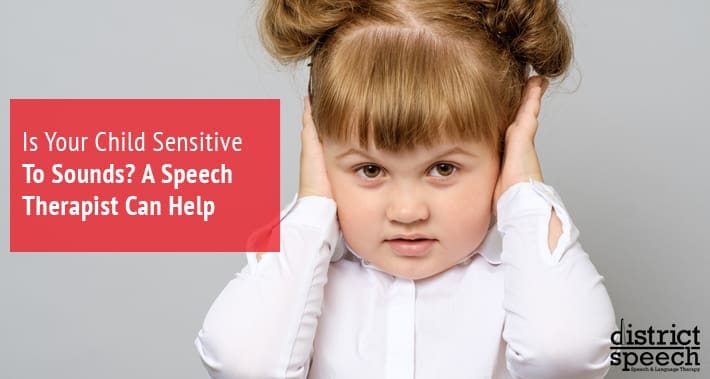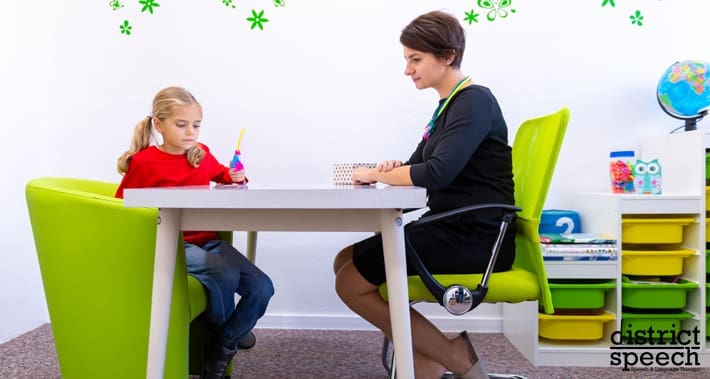
If your child is sensitive to environments with lots of sensory stimulation, they are not alone.
Statistics on sensory sensitivity, show that sensitivity to environmental stimulation occurs in about 15% of US children.
Today, we will be focusing on children with sound sensitivity.
There are many potential causes for sensitivity to sounds in kids.
Often, it can be an indicator that your child has a central auditory processing disorder.
Statistics on auditory processing disorder state that about 3-5% of school-aged kids in the US have it.
Auditory processing disorder is a hearing problem where understanding sounds becomes difficult.
It’s a result of your child’s brain and ears not being fully coordinated.
There are various symptoms for auditory processing disorder.
Your child will differ from other children in which and how many symptoms they get.
Diagnosis may be difficult because your child’s symptoms may overlap with other disorders.
If your child is dealing with auditory processing disorder, thankfully, a speech therapist can be a great resource to address the underlying issue.
Here at our Washington DC speech therapy clinic, we can help to minimize the impact this disorder has on your child’s day to day functioning.
Getting therapy for your child early on in development is crucial.
This is because, learning and listening problems may occur when the condition is not treated early.
At District Speech, our team of therapists provide speech therapy for children with a focus on central auditory processing disorder.
This week’s speech therapy blog focuses on this disorder.
Let’s dive into what central auditory processing disorder is, what the causes are, and how it is treated.
What Is Central Auditory Processing Disorder?
Your central auditory processing is your ability to process the auditory information you hear in your central nervous system.
This auditory system is not fully developed usually until a child reaches their teenage years.
A disorder of this process means that it’s harder for your neural system to process what you hear.
There is a mismatch between what you hear, and your brain’s processing of these sounds.
Sounds that are very close to one another start to sound like the same word.
This challenge can manifest in a number of different ways.
But, it’s worth noting that a central auditory processing disorder is not a learning disability or hearing loss.
If anything, it may overlap with these issues, which can complicate a correct diagnosis.
For this reason, your child may benefit from:
What Are The Symptoms Of Central Auditory Processing Disorder?
There are a lot of symptoms associated with a central auditory processing disorder.
This is because the symptoms of a central auditory processing disorder can also include symptoms associated with a learning disability or a language challenge.
This is why it can be hard to diagnose this disorder without a lot of testing.
Symptoms may include:
- Sound sensitivities
- Sound identifying challenges
- Difficulty understanding conversations
- Mishearing sounds
- Frequently asking for repetition
- Challenges understanding complex or fast speech
- Long pauses before responding to speech
- Inconsistent responding
- Difficulty focusing
- Getting overwhelmed in noisy environments
- Poor listening in loud environments
Some of the symptoms may be misunderstood because they may be hidden by symptoms of another disorder.
These disorders include: ADHD, depression, speech and language issues, or dyslexia.
Due to this, your child may also benefit from:
RELATED: Dispelling the Myths Around Dyslexia
Making sure the underlying cause of your child’s auditory processing disorder is also treated is beneficial.
If these issues are not treated, your child may not reach the right speech developmental milestones or they may reach them later than usual.
What Causes Central Auditory Processing Disorder?
It’s often difficult to say exactly what causes a central auditory processing disorder.
This is because there are a lot of possible causes.
The exact cause of central auditory processing disorder is unknown.
Some causes can include:
- Age-related changes to your central auditory neural system
- Seizure disorders
- Neurological disorders
- Exposure to toxic heavy metals
- Birth complications like prematurity or low birth weight
- Frequent ear infections
- Traumatic brain injury
- Genetics
No matter the cause of the auditory processing disorder, treating the underlying cause can help.
This can provide treatment for the auditory processing disorder itself.
How Speech Therapists Screen For Central Auditory Processing Disorder?
Central auditory processing disorder is easily confused with hearing loss.
As a result, your pediatrician will likely recommend a hearing test.
These hearing issues can impact your child’s development, so it’s important to recognize any hearing issues that may be present.
If it’s not hearing loss, however, your child will need an audiologist to determine if it’s central auditory processing disorder.
Screening for this involves a more comprehensive central auditory assessment.
This assessment will include a series of tests.
These tests are designed to understand your child’s capacity in a wide number of subject areas.
In this case, the subject areas will focus on behaviors related to listening skills, academic ability, and general communication.
Depending on the results of this assessment, your child may be referred to an audiologist.
The audiologist will conduct further tests to determine if your child has a central auditory processing disorder.
The audiologist is the specialist who makes the final potential diagnosis.
But, your child will probably be working with an interdisciplinary team.
This will help the audiologist make the diagnosis.
This team will often include speech therapists.
We can offer therapy to help your child with their central auditory processing disorder.

How Does Speech Therapy Treat Central Auditory Processing Disorder?
A central auditory processing disorder can impact many aspects of your child’s life.
As a result, their speech therapy will focus on improving their communication.
This can also improve possible affected areas like academic performance and speech and language development.
Let’s explore what strategies your speech therapist could employ in more detail.
1. Direct Skills Remediation
Direct skills remediation targets multiple skills associated with auditory processing and aims to improve them.
Some examples include training your child to perceive sounds over time.
This may also involve training them to distinguish between different speech sounds that signal a difference in meaning.
In English, this could be learning to distinguish ‘b’ and ‘p’.
Another example is training to distinguish patterns in sound, both similarities and differences.
2. Compensatory Strategies
Compensatory strategies are focused on minimizing the effect of your child’s central auditory processing disorder on their language, cognition, and academics.
To do this, these strategies strengthen your child’s language, memory and attention.
This improves their listening, communication, learning, and social skills.
Some examples include focusing on strategies to improve their problem solving, organization, and assertiveness training.
RELATED: Our 5 Favorite Speech Language Apps: #1 Splingos Language Universe
3. Language Based Treatments
Language based treatments focus on linguistic goals in order to minimize the effects of your child’s central auditory processing disorder.
For example, this could include focusing on improving their language understanding by learning word meanings.
It can also involve explaining differences and teaching skills such as paraphrasing, and syntax.
4. Environmental Modifications
Environmental modifications are changes made to improve your child’s access of auditory information.
The goal is to enhance the sound and the listening environment so that it’s easier for your child to listen.
Some examples include using a remote microphone, hearing assistive technology, or modifying the acoustic environment by reducing reverberations.
There are a lot of different strategies to do this, but it will depend on the needs of your child’s learning space.
Book Your Appointment With District Speech Today
As you can see, there are a lot of different strategies your speech therapist can use to help your child learn to cope with their central auditory processing disorder.
The sooner your child starts speech therapy, the sooner they’ll start to notice positive results.
District Speech has a team of highly specialized pediatric speech therapists ready to help.
Book your appointment with District Speech today.
1300 I St NW, Suite 400 E,
Washington, DC 20005
- https://g.page/districtspeech
District Speech and Language Therapy specializes in speech therapy, physical therapy, and occupational therapy solutions, for both children and adults, in the Washington D.C and the Arlington Virginia areas.